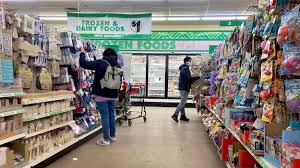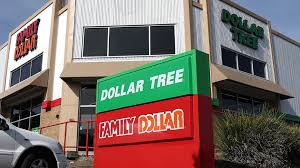The 99-Cent store, Family Dollar, and Dollar Tree have played a significant role in helping low-income communities and households. These stores have provided affordable options for everyday essentials, making it easier for people to manage their budgets.
Inflation can impact businesses, including discount stores like the 99 Cent store and Dollar Tree. As the cost of goods and services increases over time, it can become more challenging for these stores to maintain their low prices while still covering their expenses. This can lead to closures in some cases. Cnn.Com communicates how the 99-cent store company “said inflation and shoplifting have contributed to their troubles. While inflation has pressured the companies’ low-income customer base and shoplifting has squeezed their profits, those factors alone can’t explain their difficulties.” Shoplifting, also being a massive problem with stores in low-income communities is also a huge factor in their closing. Many people may say, “If you shoplift, always shoplift from giant corporations and not small businesses ‘, but even shoplifting from giant corporations could leave a big impact, as shown here.
The Dollar Stores mentioned are also known as poorly maintained businesses. Some of their owners and CEOs don’t know how to run a dollar business, causing them to close down. They have different targeted customers, like Family Dollar, which targets lower-income families, while Dollar Tree targets more middle-class families.
Although these dollar stores are mostly located in the southwestern region of the United States, that is where most of the low-income families are, especially in California and near the border with Mexico.
Mexico.
It’s also important to note that closing individual stores doesn’t necessarily mean the end of the entire chain. These stores often have multiple locations, and closures can happen due to various factors such as lease agreements, market conditions, or changes in consumer preferences. Usatoday.com conveys, “Another 400 stores under the Family Dollar and Dollar Tree banners are slated to shutter in the coming years as their leases expire.”. Not just inflation and shoplifting are the causes for these bans, but also lease agreements.
While the closure of these stores can be a setback for low-income communities, it’s worth mentioning that other discount stores and options are still available. Additionally, some communities may have local markets or programs that assist those in need. According to the University of Southern California, About one million households in Los Angeles are food insecure, meaning they have trouble affording groceries, and most of the time, they depend on cheap grocery stores like the 99 Cent store, Dollar Tree, and Family Dollar to help provide for their families. LA Citizen De la Hay explains, “I don’t think dollar stores are where people get a lot of nutritious food. But I do worry that this is going to make it a lot harder for people who are already struggling to put food on the table,”. It’s not about nutrition but about the families’ kids, grandparents, or whoever they need to feed and put food on the table.








